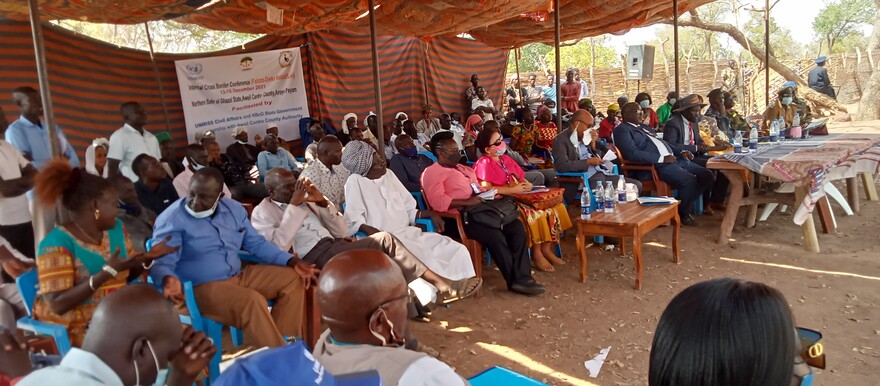The Luo, Fallata, and Dinka Malual communities of Northern Bahr el Ghazal State have committed to maintaining peace during the first cattle migration peace conference in Aweil Center County.
The two-day conference which ended on Wednesday formed a 17-member committee to draft laws to govern the communities.
Speaking to Radio Tamazuj on Wednesday, Luo’s Paramount Chief in Barmayen County in Northern Bahr el Ghazal State, Santino Malong Al-Zubeir, says he hopes the new peace body will work with all the communities equally.
“We have come up with the formation of the peace committee to unite us with all migrants who come to us in Aweil center,” he said. “All this time we have been hosting Dinka and in 2005, a huge number of Fallata arrived here and we stayed with them without governing laws that is why we initiated the new peace body.”
Mohammed Omer, a chief representing the Fallata group says their tribesmen will abide by any resolutions passed by the peace committee.
“We have been attending the peace conference since the day before yesterday about peace cohesion between the Fallata, the Luo, and the Dinka. We have discussed everything and we recommitted ourselves to solve any problem in one way or another,” says Omer.
Aweil Center County Commissioner, Peter Natale, said the government is concerned about the peaceful co-existence of communities there.
“We are organizing the conference to create peaceful coexistence among the increasing incoming Fallata cattle keepers with our host communities,” he said.
The conference was organized by the Northern Bahr el Ghazal state government with funding from UNMISS’s Civil Affairs Division.




